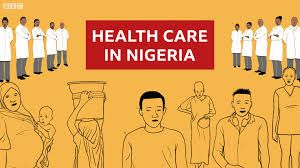
The federal government has urged Nigerians living abroad to play a more active role in strengthening the country’s health sector by channeling remittances and other resources into structured initiatives, particularly health insurance schemes.
Speaking on Thursday at the closing session of the National Health Financing Policy Dialogue in Abuja, the Coordinating Minister of Health and Social Welfare, Muhammad Pate, highlighted the critical role the diaspora community can play in accelerating health reforms and achieving universal health coverage.
Pate explained that diaspora contributions should move beyond ad-hoc charity and emergency support to sustainable financing models.
“Even insurance is something we learned from diaspora health systems. Instead of sending money home whenever an aunt or uncle falls sick, diasporans can pay for their health insurance. That brings the diaspora closer to home while providing predictable and sustainable care”, ” Pate said.
The minister also highlighted significant strides made in health financing over the last two years under President Bola Tinubu’s administration.
Key initiatives include:
-
Expansion of the Basic Health Care Provision Fund (BHCPF): delivering billions of naira to thousands of primary healthcare centres nationwide.
-
Scaling up health insurance coverage: aiming to increase coverage from 20 million Nigerians today to 44 million by 2030.
-
Targeted intervention funds, including:
-
the Vulnerable Groups Fund;
-
emergency obstetric care and fistula repair programmes;
-
dialysis subsidies; and
-
the planned catastrophic health insurance fund to support patients battling cancer, kidney disease, and other critical illnesses.
-
Pate stressed that a strong partnership between government, the private sector, development partners and the Nigerian diaspora is essential to deliver quality healthcare and secure sustainable financing for the future.
The three-day dialogue, themed “Reimagining the Future of Health Financing in Nigeria,” brought together policymakers, civil society, private-sector players, and development partners to translate commitments into practical strategies for reducing out-of-pocket spending, strengthening accountability, and boosting domestic investment in healthcare.



